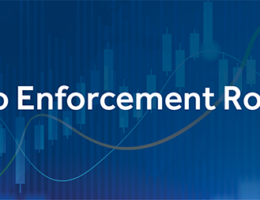On October 11, 2023, the Federal Deposit Insurance Corporation (the “FDIC”) published in the Federal Register for comment a notice of proposed rulemaking to establish new guidelines (the “Proposed Guidelines”) for governance and risk management at FDIC-supervised insured depository institutions (i.e., state non-member banks) with $10 billion or more in consolidated assets (“covered institutions”). The Proposed Guidelines would be issued as Appendix C…
On September 27, 2023, Senate Banking Committee members advanced the Secure and Fair Enforcement Regulation (SAFER) Banking Act (S. 2860) out of committee for a full Senate vote. Prior versions of the bill have passed the House of Representatives repeatedly; however, the bill had never before been considered in the Senate. According to a joint statement by the sponsors of the…
On August 28, 2023, the SEC announced its first enforcement action against an NFT project, via a settled order as to Impact Theory, LLC (“Impact Theory”) for the offer and sale of unregistered securities. However, absent from the order is any attempt to grapple with the unique issues presented by non-fungible tokens. The SEC instead drafted an order that is…
As previewed by banking agencies for over a year and with increased frequency after the recent bank failures,[1] the Federal Deposit Insurance Corporation (“FDIC”), the Federal Reserve Board (“FRB”) and the Office of the Comptroller of the Currency (together with the FDIC and FRB, the “Agencies”) on Tuesday issued three key proposals regarding minimum long-term debt requirements and resolution planning.…
After several years of anticipation, the Federal Reserve Board (“FRB”), Federal Deposit Insurance Corporation (“FDIC”) and the Office of the Comptroller of the Currency (“OCC”) (the “Agencies”) issued for comment a long-awaited proposal (the “Capital Proposal”) on the U.S. implementation of the so-called Basel III endgame. The FRB also issued a proposal related to the capital surcharge for the eight…
In a Law360 article originally published July 25, 2023, Andrew J. Ceresney, Stephan J. Schlegelmilch and Megan McGuiggan discuss the recent United States Court of Appeals for the District of Columbia Circuit order preliminarily enjoining FINRA from proceeding in an enforcement action against Alpine Securities, a FINRA member firm. The article, “DC Circ. Ruling Could Mean FINRA Hearings Are On…
OVERVIEW On June 5, 2023, the SEC filed a complaint against Binance Holdings Limited (“Binance”) and its founder, Chengpeng Zhao (“Zhao”), for operating an unregistered exchange, broker-dealer, and clearing agency under an intentional deceptive scheme that was designed to evade U.S. regulation.. The SEC also brought action against BAM Management and BAM Trading, U.S. entities related to Binance, for the…
On June 21, 2023, the Recovering Executive Compensation Obtained from Unaccountable Practices (RECOUP) Act passed 21-2 out of the Senate Banking Committee. Spearheaded by Sens. Sherrod Brown (D-OH) and Tim Scott (R-S.C.), the legislation seeks to “strengthen[] certain existing authorities” to address concerns regarding executives’ accountability in the wake of the recent bank failures.[1] The legislation is particularly noteworthy because…
On June 20, 2023, Jonathan Kanter, the Assistant Attorney General for the Department of Justice’s Antitrust Division, gave a speech at the Brookings Institution outlining his thoughts on promoting competition in banking. Recently, Acting Comptroller Hsu and Treasury Secretary Yellen expressed a willingness to being open-minded concerning bank mergers and “acting in a timely manner on applications”;[1] however Kanter’s speech,…
I. Introduction In the wake of the industry’s 2022 “crypto winter,” which spiraled into a “cryptopocalyse,” industry watchers were focused on the contagion effect of the various crypto-related bankruptcy filings. In particular, starting with the May 2022 collapse of Terra LUNA and its TerraUSD (UST) stablecoin, many market participants had to halt operations, limit withdrawals, or take emergency bailout loans…










